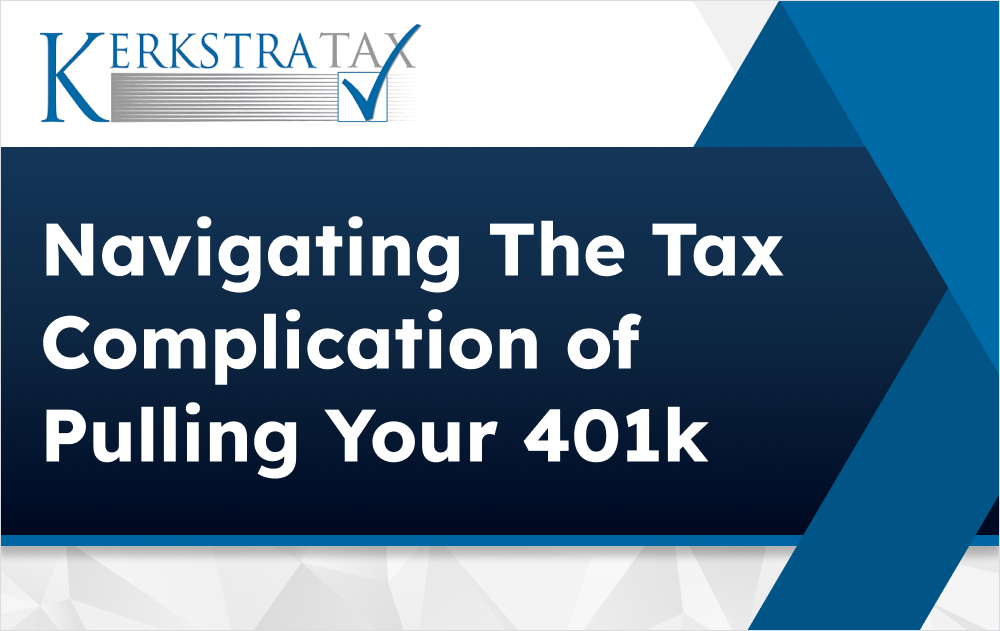When it comes to planning for retirement, many individuals rely on employer-sponsored 401(k) plans to secure their financial future. However, accessing funds from your 401(k) before retirement age can be a complex endeavor fraught with tax implications and potential pitfalls. At Kerstra Tax, we understand the importance of informed decision-making when it comes to managing your retirement savings. In this blog, we’ll explore the major tax complications associated with pulling your 401(k) money and provide insights to help you navigate this process effectively.
Understanding Early Withdrawal Penalties
One of the primary tax complications of pulling money from your 401(k) before the age of 59½ is the imposition of early withdrawal penalties. In addition to ordinary income tax, the IRS typically imposes a 10% penalty on the withdrawn amount. This penalty serves as a deterrent to discourage individuals from tapping into their retirement savings prematurely.
Impact on Taxable Income
Withdrawals from a traditional 401(k) are treated as taxable income in the year they are withdrawn. As such, pulling a significant amount from your 401(k) can substantially increase your taxable income for the year, potentially pushing you into a higher tax bracket. This can result in a higher overall tax liability, reducing the net amount you receive from your withdrawal.
Considerations for Roth 401(k) Contributions
For those who have made contributions to a Roth 401(k), withdrawals of contributions (not earnings) are generally tax-free if certain conditions are met. However, withdrawals of earnings may be subject to income tax and potentially early withdrawal penalties if taken before age 59½ and before the account has been open for five years. Understanding the tax implications specific to Roth contributions is crucial when considering pulling money from your 401(k).
Alternatives to Early Withdrawals
Before resorting to pulling money from your 401(k) prematurely, it’s essential to explore alternative options to meet your financial needs. For example, taking out a low-interest loan, adjusting your budget, or exploring other sources of funding may offer a more favorable solution without jeopardizing your retirement savings or incurring significant tax consequences.
Consulting with a Tax Professional
Given the complexity of tax implications associated with pulling money from your 401(k), seeking guidance from a qualified tax professional is highly recommended. A tax consultant can help you assess your financial situation, evaluate the potential tax consequences of different withdrawal scenarios, and explore alternative strategies to achieve your financial goals while minimizing tax liabilities.
Call Kerstra Tax Today
At Kerstra Tax, we specialize in providing comprehensive tax planning and advisory services to individuals facing complex financial decisions, including retirement planning and 401(k) withdrawals. Our team of experienced professionals is committed to helping you navigate the intricacies of tax law and make informed decisions that align with your long-term financial objectives.
Don’t let the tax complications of pulling your 401(k) money deter you from making informed financial decisions. Contact Kerstra Tax today to schedule a consultation and explore strategies to optimize your retirement planning while minimizing tax liabilities. With our expertise and personalized approach, we’ll help you secure your financial future with confidence.

 (909) 946-1000
(909) 946-1000





